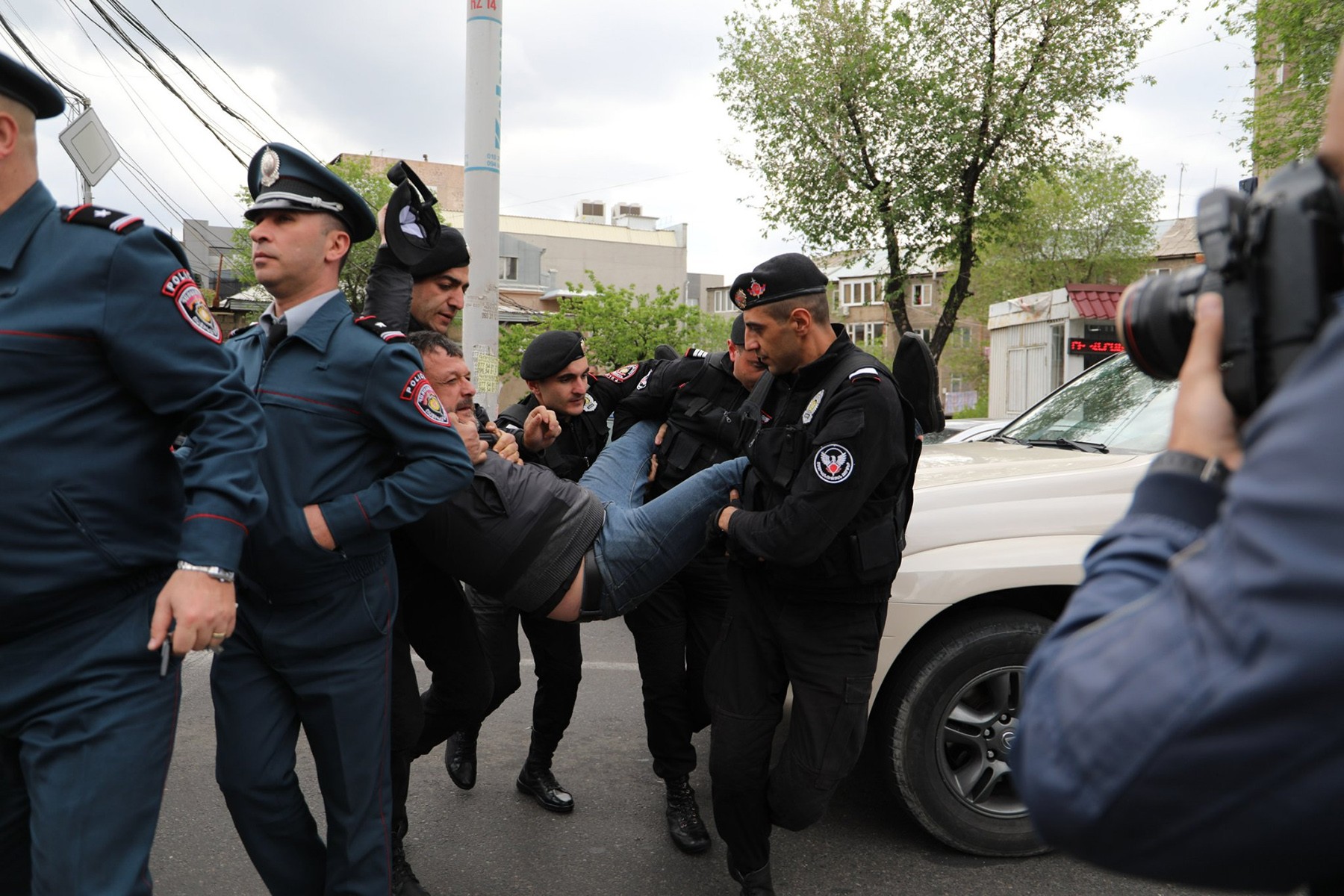
Roughly 8,000 protesters gathered in the centre of Yerevan demanding the resignation of Prime Minister Nikol Pashinyan. The gathering was the culmination of two weeks of protest and civil disobedience throughout Armenia.
The 10 May rally held in the capital’s central France Square, while large, was smaller than the rally held in that same spot on 1 May, which had kicked off the ‘non-stop’ protests.
In addition to rallies, opposition protesters have also undertaken a series of road closures throughout Yerevan and several cities in Armenia. For the most part, the roadblocks were quickly shut down by police, with dozens of protesters being detained.
Ishkhan Saghatelyan, Vice President of the National Assembly of Armenia and a key leader of the opposition Armenian Revolutionary Federation (ARF) party, has stated that the opposition demands not only Pashinyan’s resignation but the replacement of his administration with an unelected interim government that would rule for up to a year-and-a-half.
Gegham Manukyan, an MP with the Armenia Alliance bloc and member of the ARF (a part of the bloc) told reporters that leaders should be ‘experienced’ figures, though he was not forthcoming on exactly who these experienced individuals would be.
Ishkhan Saghatelyan said that the ‘new government’ post-Pashinyan would not push forward the idea of ‘lowering bars’ on the status of Nagorno-Karabakh during negotiations to resolve the conflict — in reference to earlier comments made by Pashinyan, in which the Prime Minister appeared to drop the demand for the recognition of Nagorno-Karabakh’s independence.
Saghatelyan added that a post-Pashinyan government would ‘rule out’ providing a ‘corridor’ for Azerbaijan through Armenian territory ‘at the expense of Armenia’s sovereignty and territorial integrity’. Armenia would also refrain, the ARF leader said, from carrying out border demarcation ‘under the threat of the use of force by Azerbaijan’.
Violence
As a result of near-daily clashes between police and protesters, primarily during the latter’s attempts to block roads, hundreds of people have been detained — though most have since been released.
Over two dozen criminal cases have also been opened against protesters, for alleged crimes that include, but are not limited to, hooliganism, using violence against a government official, and obstruction of traffic.
While opposition leaders have urged supporters to remain peaceful, violence has nevertheless erupted during opposition protest actions most notably in the city of Gyumri, where a group of young opposition demonstrators violently assaulted four elderly men who they allege had thrown eggs and insulted them.
The four men, aged between 74 and 84 years old have claimed that the attack was unprovoked.
Armenia’s Human Rights Defender Kristine Grigoryan has also condemned violent conduct allegedly carried out by the Armenian police.
‘The practice of apprehending people by squeezing their throats and suffocating them during apprehension was a common problem raised’, a statement published by the Human Rights Defender reads. ‘Such practice is simply inadmissible’.








